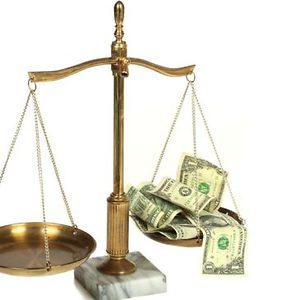Can I Recover the Cost of My Attorney’s Fees?

I am often asked by clients whether the attorney’s fees and expenses associated with litigation can be recovered from the opposing party. The general rule in Georgia is that each party bears its own legal fees. But, there are circumstances where Georgia does allow a party to recover its legal expenses from the opposing party. These limited circumstances are based upon many factors, which may or may not apply in every case and may not be apparent at the beginning of every case. For example, you generally have to prevail in a lawsuit to have any chance of recovering your litigation expenses; but, winning does not mean you are automatically entitled to recover your legal expenses from the losing party. Other relevant factors may include the type of lawsuit, the facts of the case, whether you are the plaintiff or the defendant, the conduct of the parties before and during litigation, and whether the decision to award attorney’s fees is left to the discretion of the judge assigned to the case or not.
My practice mostly consists of litigating contract disputes, and the expenses of litigation generally are not allowed as part of the damages in an action for the breach of a contract in Georgia. For this reason, many contracts include “attorney’s fees” or “expenses of litigation” provisions that provide for payment or reimbursement of attorney’s fees by the party that defaults on their obligations under the contract. Still, most people are not aware that even these contractual provisions are not always enforceable as written. For example, a contractual obligation to pay attorney’s fees under a promissory note, commercial lease, or any other contract that qualifies as an “evidence of indebtedness” will not be enforced unless the non-defaulting party gives the defaulting party the proper “ten-day” notice under O.C.G.A. § 13-1-11. Merely demanding payment without strictly providing the notice required under O.C.G.A. § 13-1-11 will prevent enforcement of an attorney’s fees provision in these types of contracts.
This statute may also limit the amount of attorney’s fees that can be recovered under these types of contracts. The formula under O.C.G.A. § 13-1-11 is antiquated and does not account for the rising cost of legal fees in Georgia, and this often results in an award of attorney’s fees that is much less than the fees actually incurred in the lawsuit. Thus, anyone who is owed money under a contract and needs an attorney to help them enforce their right to payment should ask their attorney about other possible avenues available for recovering their legal expenses under Georgia law. It is not enough to just assume that you will be entitled to reimbursement for all of your legal expenses based merely upon a provision in a contract; it this is the exception, not the rule.
Georgia law on attorney’s fees is complex, and there are multiple statutes that provide for the recovery of attorney’s fees in limited situations. Properly navigating and understanding how each statute operates and understanding how to preserve and enforce your contractual rights are crucial to whether or not you will be able to recover your litigation expenses in the end.
Graham (“Gray”) Brantley is a commercial litigation associate with Andersen, Tate & Carr, P.C., and specializes in contract and real estate litigation. For more information, you can contact Gray Brantley by email at gbrantley@atclawfirm.com or by phone at (770) 822-0900.
